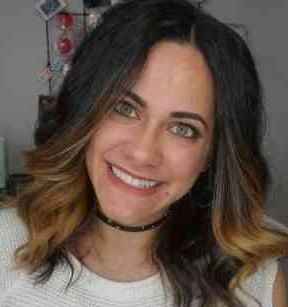
Transitions
Transitioning into Adulthood
By Jessica Tursi

Life is always changing. As human beings we’re always growing and transforming our lives to best suit ourselves. In a blink of an eye it almost feels like it we’re grown. Isn’t that what life is all about; growing to be the best version of ourselves? There are many changes that will occur during a person’s lifetime. We change and grow each year. For instance, one moment we’re in the playground during recess with no worries or cares in the world, and the next moment we’re graduating high school, heading off to college or starting our first 9 to 5 jobs. Either way, the minute you are handed your high school diploma, you step out into the real world.
For most people the transition from high school to college might not be a problem, but for those of us with disabilities like myself, it could be a challenge. During this transition we come into a new role that many of us may not be familiar with, and that’s adulthood. During high school most of our parents are our biggest advocates, but once you’re an adult in college, you will find out fast that you are your own advocate and have to speak up for yourself. Now, along with this new found freedom, you are also are becoming more responsible for yourself. This can include doing laundry, cooking, cleaning, being responsible for your homework, and being on time for classes. If you have a disability you may have extra responsibilities relating to it. For myself it is stretching twice a day, my daily strengthening exercises and remembering to take my daily dose of Baclofen. You need to learn to find a balance between being a young adult with freedom, and also being responsible for your disability because, let’s face it, a little neglect can harm you and your disability in many ways.
My biggest hurdle was learning to speak up for myself. I was the type of person who never wanted to draw attention to my disability or speak about it. Sometimes, if you have a disability, you may lean on your parents a little more than someone without a disability. That’s okay. They have been your support system for your whole life. This transition can also be an emotional one, especially if you choose to go away to college. You begin to realize you are further away from your parents and family, and no longer can rely on your teachers or peers who supported you for the past four years. Since I started kindergarten, my mom was a parent advocate for special needs. This lasted all through my high school years, so I was used to having her take charge of my education and physical needs. It didn’t even dawn on me that I was going to have to do that for myself once got to college. I remember my first week of college I came home and asked my mom to contact my advisor to see if I could leave my classes five minutes early, so I would be on time for my next class. This was something I did all through high school. She looked at me and laughed and said you’re an adult now, you have to handle this. The next day I went into my advisor’s office, and for the first time in my life I had to speak up and be my own advocate. I won’t lie to you, I definitely had that nervous, shaky voice, but I did it! It helped me make my school year that much easier. A month later, I had to speak up again for myself. I couldn’t carry all the textbooks that I needed for each class, as it was physically impossible for me. They worked with me and I was able to have a separate set of text books in each classroom so I didn’t have to carry any. Once I got the hang of it, I enjoyed being my own advocate and felt good about telling people things that I needed in order to succeed in my college career. This will also apply to a work place.
During each transition that we go though in life, we may have to adjust some things according to our disability. By no means does this make you any less qualified then someone else. Remember, it’s always better to tell the truth and be upfront about what you can and cannot do. I always tell myself “I can do anything I put my mind to, I just might have to do it a little bit different”.